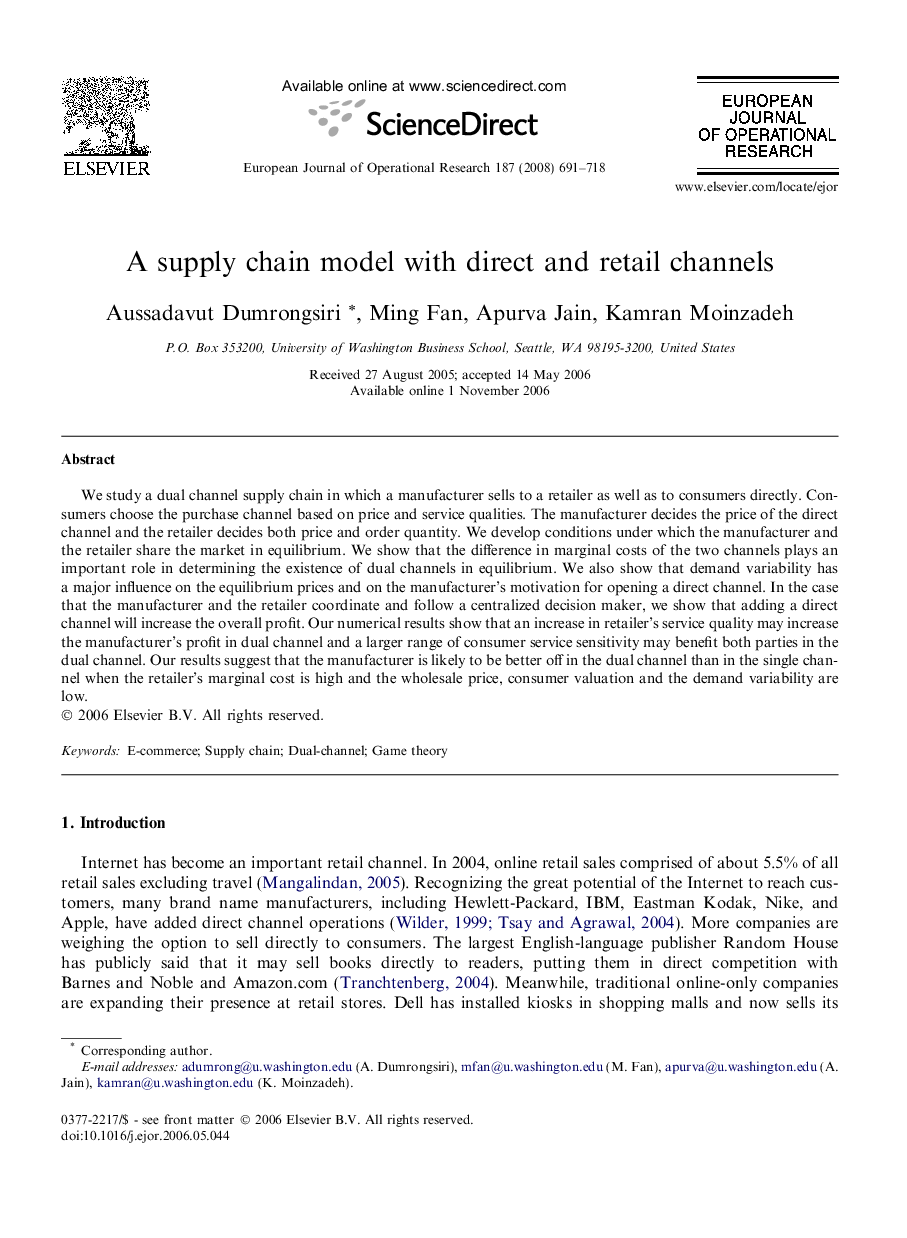| Article ID | Journal | Published Year | Pages | File Type |
|---|---|---|---|---|
| 477623 | European Journal of Operational Research | 2008 | 28 Pages |
We study a dual channel supply chain in which a manufacturer sells to a retailer as well as to consumers directly. Consumers choose the purchase channel based on price and service qualities. The manufacturer decides the price of the direct channel and the retailer decides both price and order quantity. We develop conditions under which the manufacturer and the retailer share the market in equilibrium. We show that the difference in marginal costs of the two channels plays an important role in determining the existence of dual channels in equilibrium. We also show that demand variability has a major influence on the equilibrium prices and on the manufacturer’s motivation for opening a direct channel. In the case that the manufacturer and the retailer coordinate and follow a centralized decision maker, we show that adding a direct channel will increase the overall profit. Our numerical results show that an increase in retailer’s service quality may increase the manufacturer’s profit in dual channel and a larger range of consumer service sensitivity may benefit both parties in the dual channel. Our results suggest that the manufacturer is likely to be better off in the dual channel than in the single channel when the retailer’s marginal cost is high and the wholesale price, consumer valuation and the demand variability are low.
